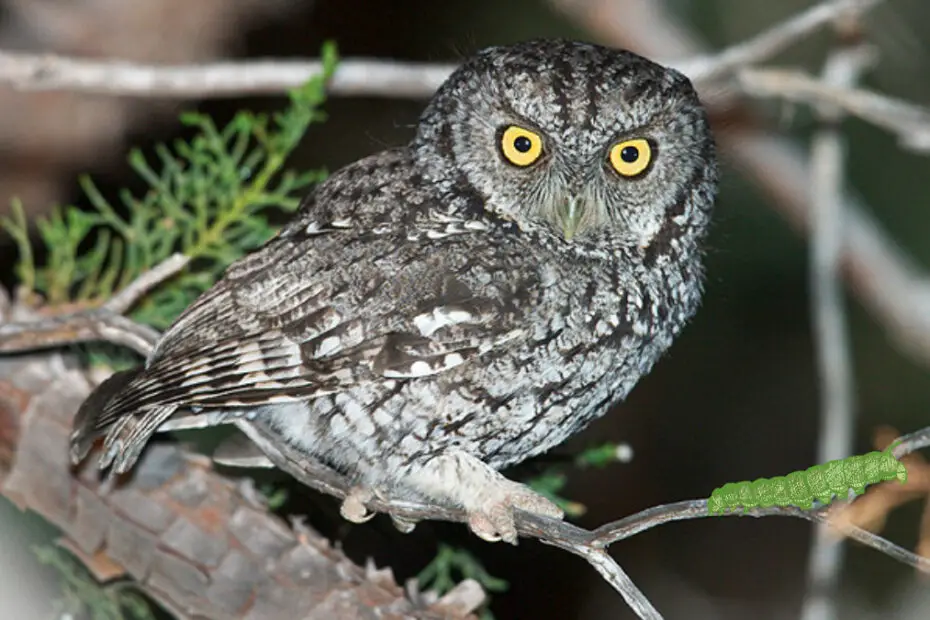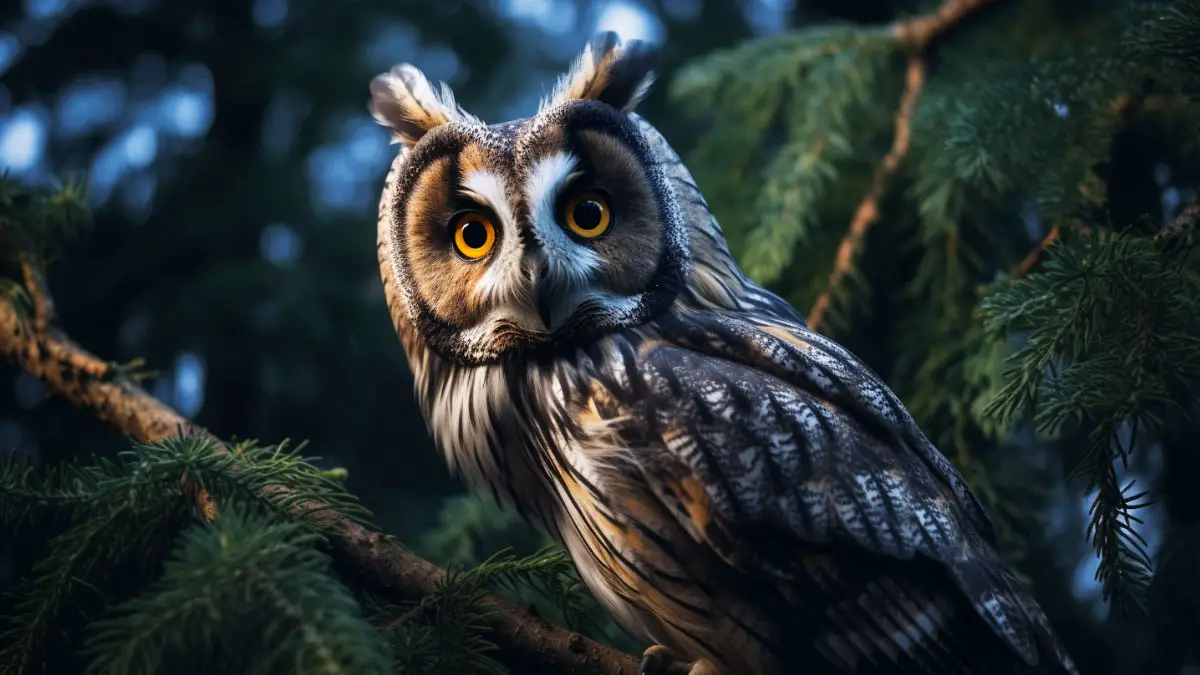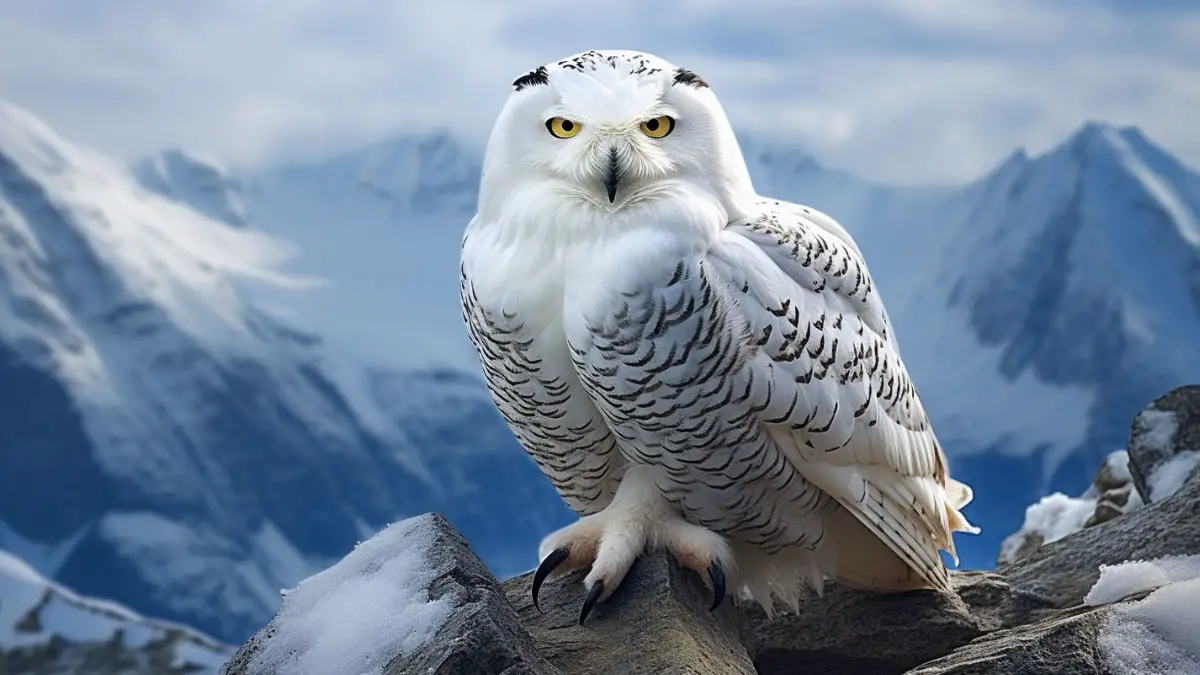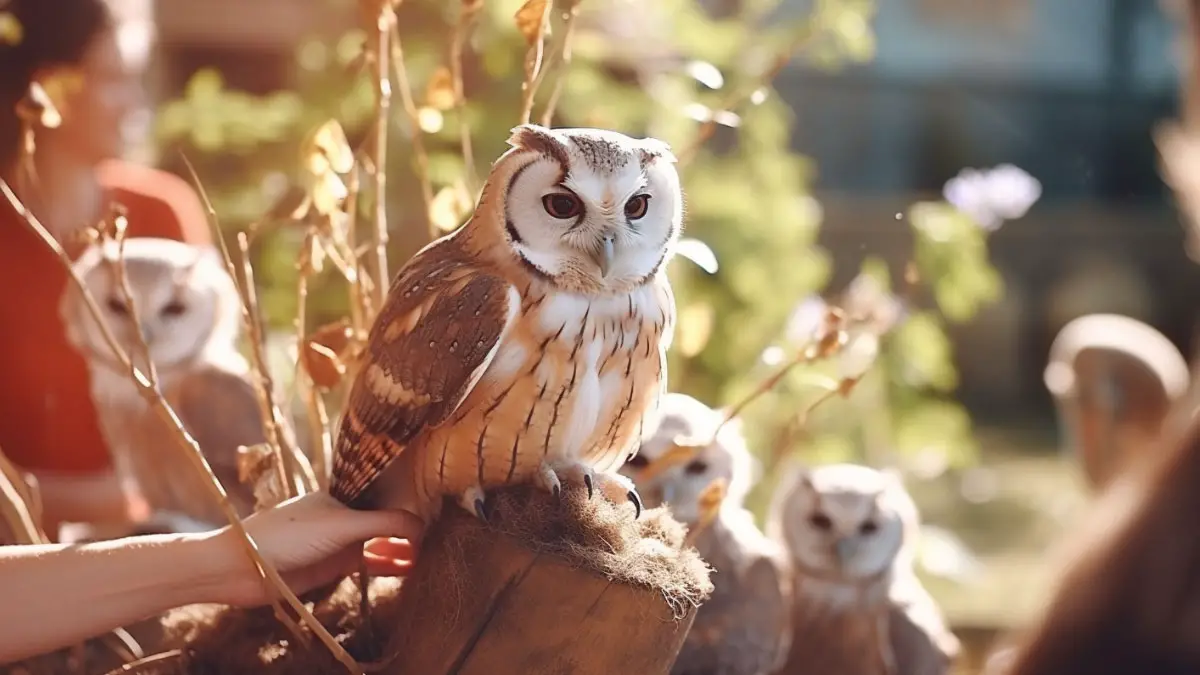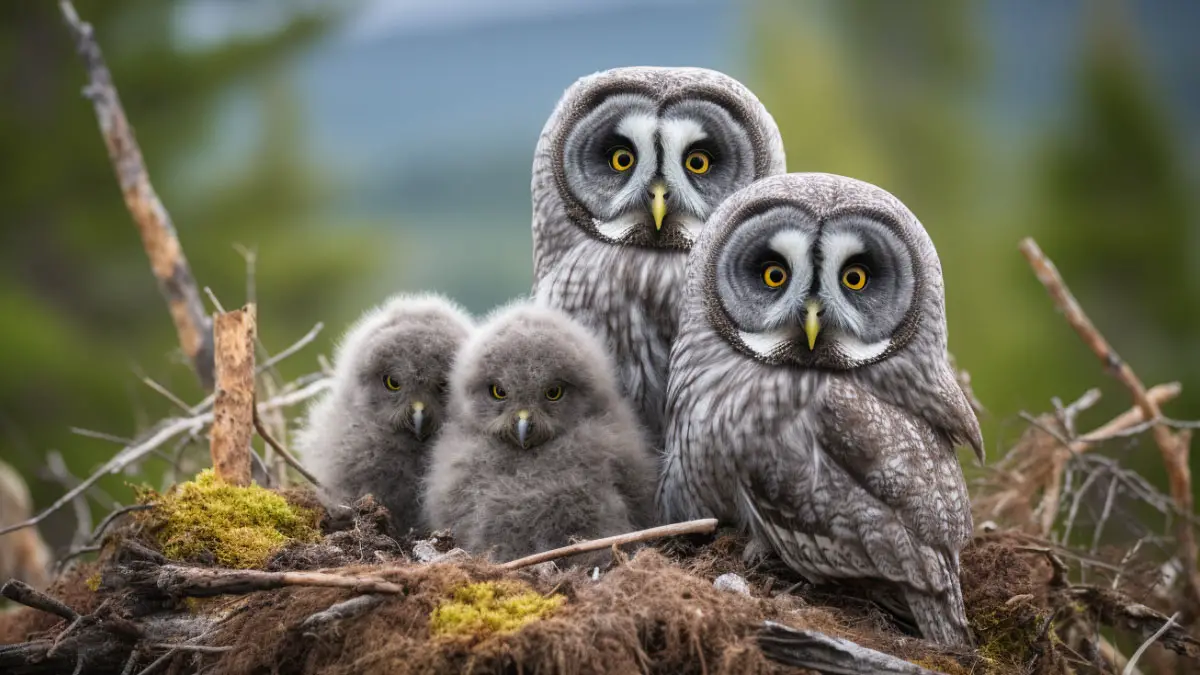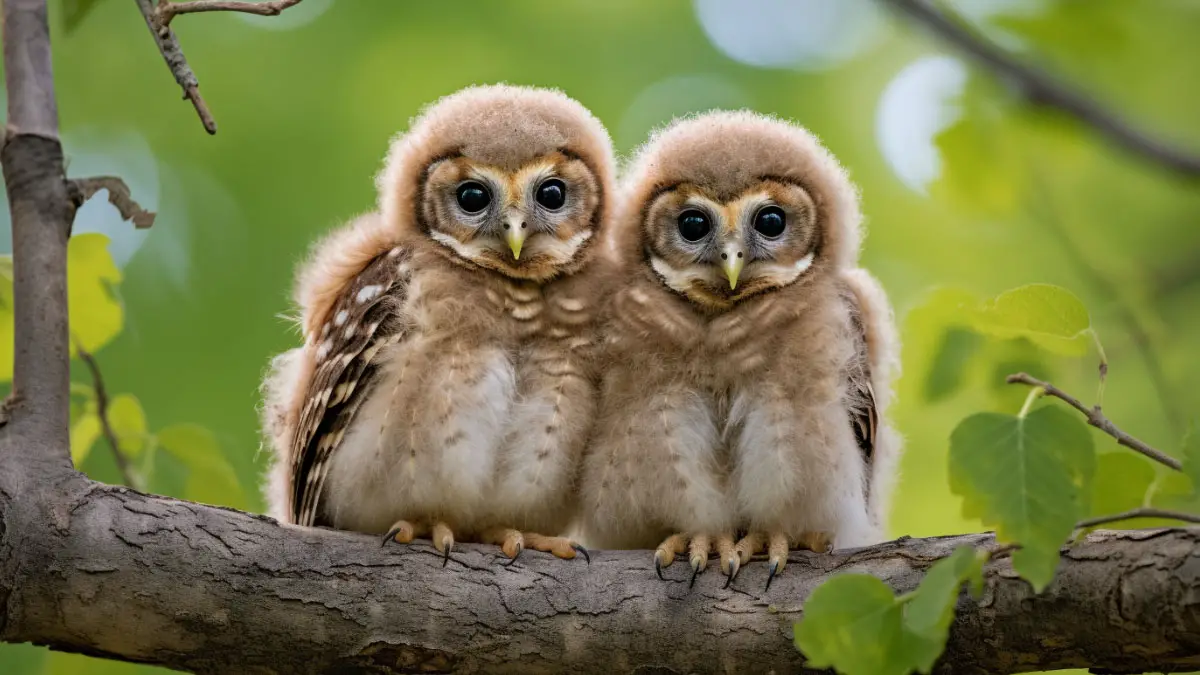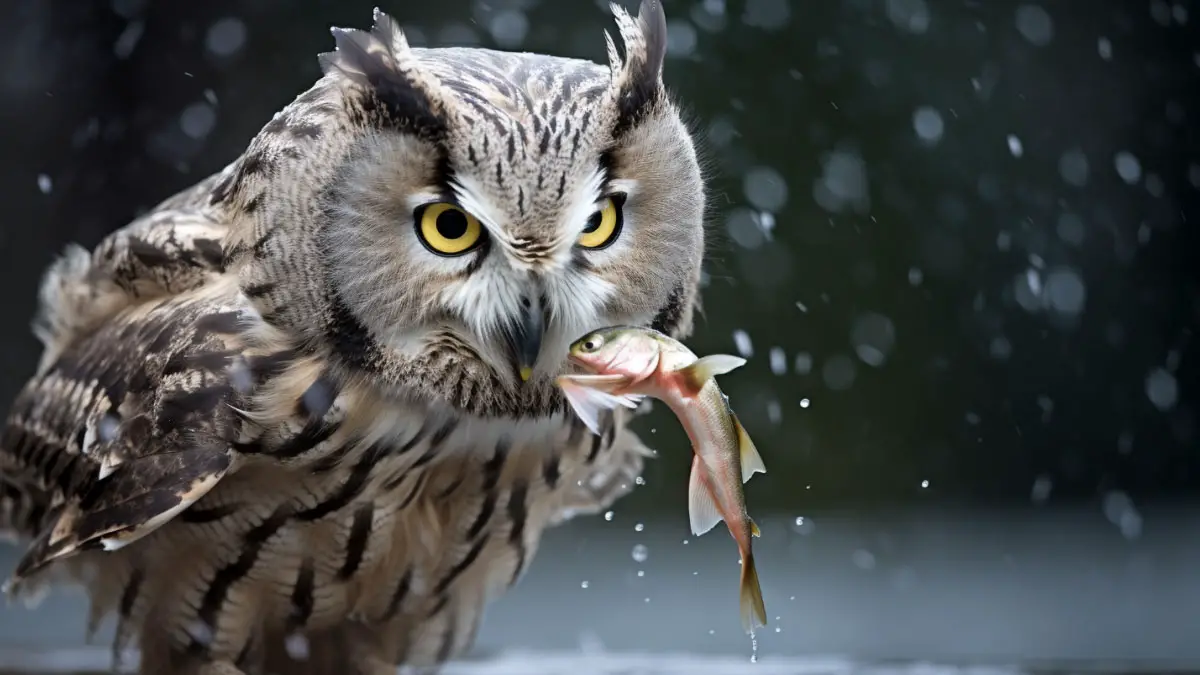Owls are skillful hunters and help maintain a balance in nature by keeping the population of small mammals and insects in check.
So, do owls eat caterpillars? Yes, owls eat caterpillars alongside their regular diet of small mammals, birds, and insects. Caterpillars are a great source of protein for owls, particularly for young owls. Several owl species that are known to eat caterpillars as part of their diet include:
- The Barred Owls
- The Baby Burrowing Owls
- The Whiskered Screech Owls
- The Great Horned Owls
In this article, we will uncover whether owls eat caterpillars or not, the benefits of consuming caterpillars, the hunting techniques of owls, and the method of eating caterpillars. Let’s get started!
Do Owls Eat Caterpillars?
Yes. Owls are known to eat caterpillars as part of their varied diet. These creatures are opportunistic predators and consume various small animals, including insects.
In one of the studies, scientists observed that owls consume up to 33% of Lepidopteran prey. It was noted that all the Lepidopteran prey discovered by the scientists were caterpillars and not adult moths.
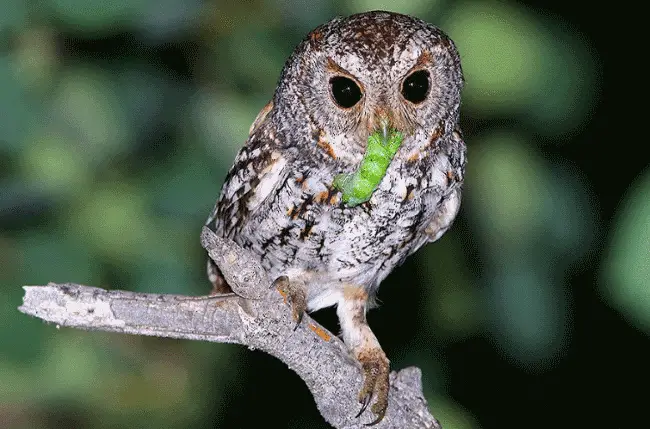
Another journal stated that Whiskered Screech Owls primarily consume large insects such as caterpillars, beetles, crickets, and katydids. Caterpillars play a crucial role in the diet of many owl species.
This particularly occurs during the breeding season when the demand for food is higher due to the presence of nestlings. A recent study examines that insects provide 12% of the total animal protein.
According to research, owls prefer consuming caterpillars because they are relatively large, softer than other insects, and more nutritious. Caterpillars contain significantly more carotenoids than Ortho pteroids or opilionids, making them a more viable nutritional source.
How Do Different Species Of Owls Hunt For Preys Like Caterpillars?
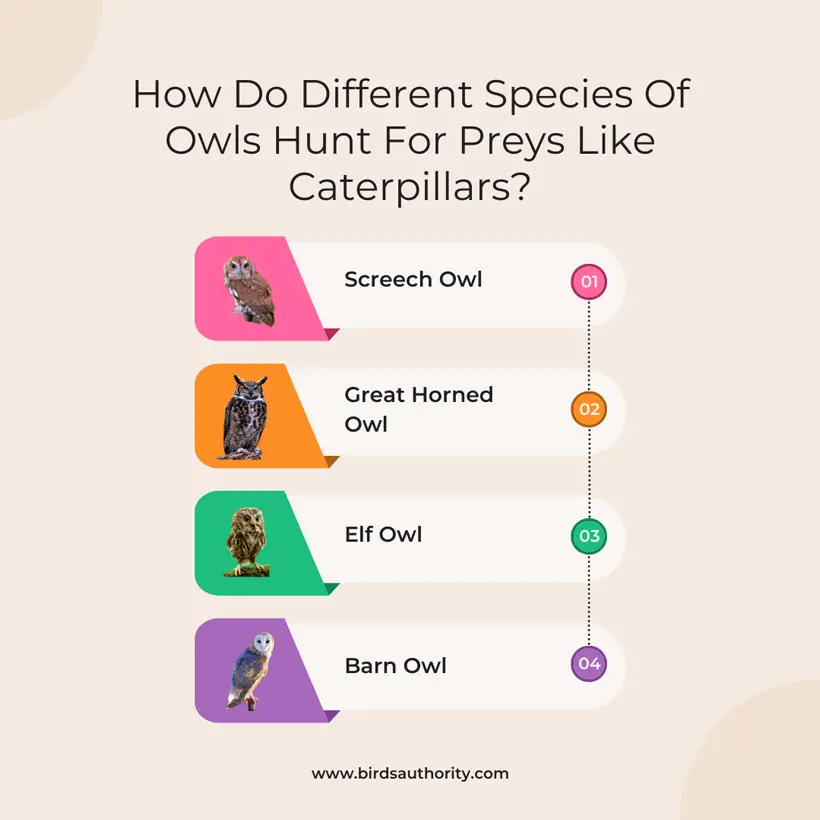
Various owl species have developed different methods to effectively hunt their prey. Below, we have provided a general summary of the techniques that different owls use to hunt their prey.
Screech Owl
The Screech Owl is a tiny species of owl that hunts primarily in the dark. It likes to feed on insects like caterpillars, birds, and small mammals.
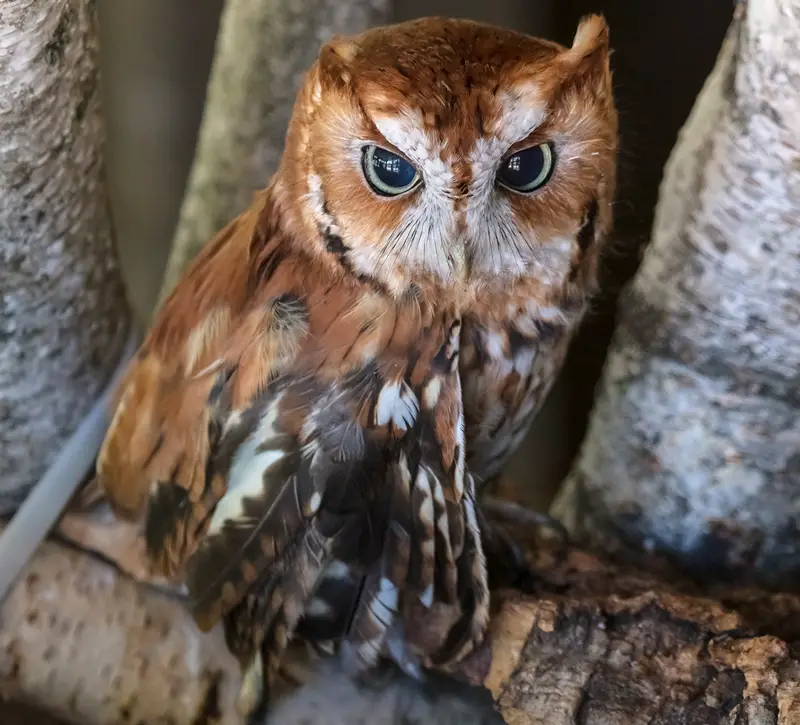
This small owl species uses its extraordinary power of camouflage to merge into the tree bark, waiting patiently for prey to arrive. Once the prey comes in range, the Screech Owl will launch forward and capture it with its sturdy beak.
Great Horned Owl
The Great Horned Owl is known as a powerful predator that typically hunts during the night or twilight hours. It usually sits on tree branches or tall infrastructures and looks for possible prey like rabbits, caterpillars, squirrels, and birds. This owl uses its strong talons to quietly snatch its target.
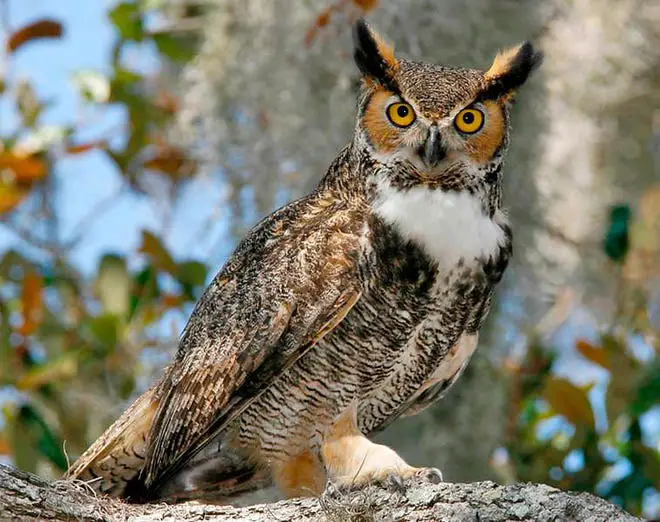
Elf Owl
The Elf Owl is smaller in size compared to other owls. It mainly hunts at night and consumes different small animals like caterpillars, spiders, and little lizards.
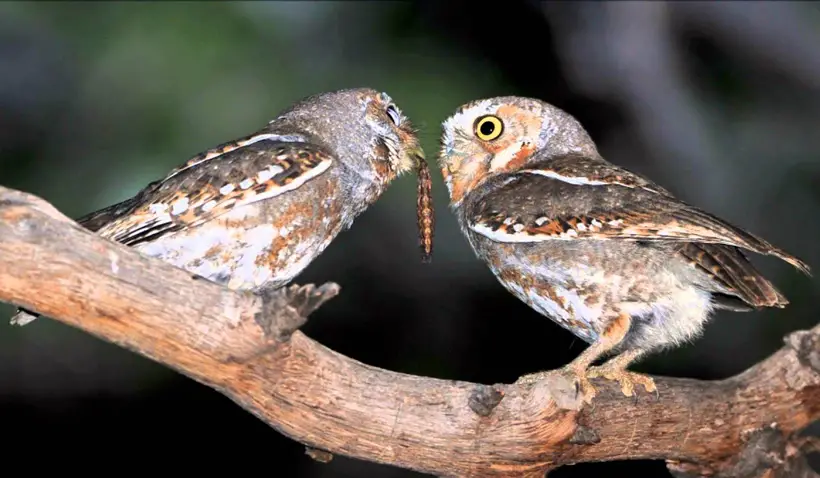
The Elf Owl uses its great agility to search and capture prey between trees and shrubs while in flight. It can catch insects while they are flying or pick them off the leaves and branches. Its small size helps it search in tiny spaces for potential prey.
Barn Owl
The Barn Owl mainly hunts during the night by flying quietly over open fields and grasslands. Its exceptional vision in low light and sharp hearing skills make it an effective hunter.
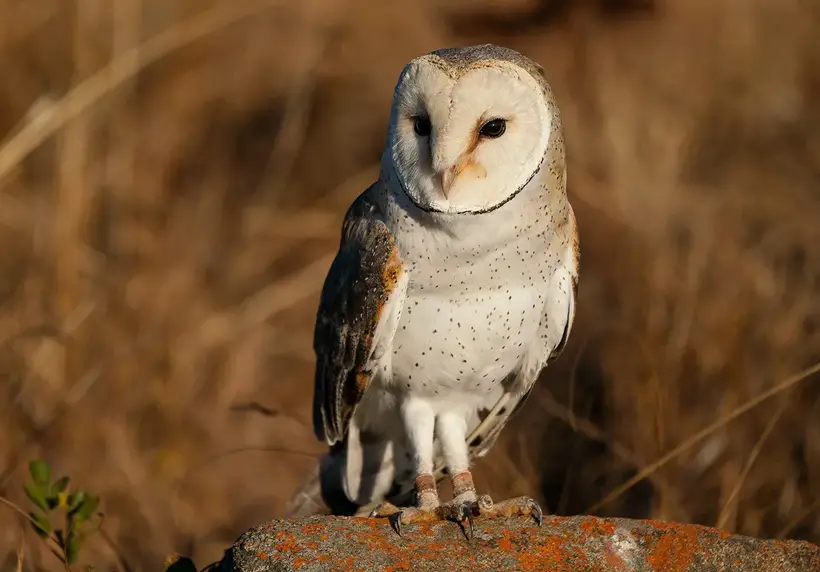
Additionally, the Barn Owl has excellent hearing that helps it detect small insects and mammals such as caterpillars, wood mice, and voles moving around in the grass. When it finds its prey, the Barn Owl quickly swoops down and catches it using its sharp talons.
What Factors Influence Owls To Feed On Caterpillars?
The diet of owls can change depending on their environment and the availability of prey. There are several key factors that could cause owls to feed on caterpillars. Some of these factors include the following:
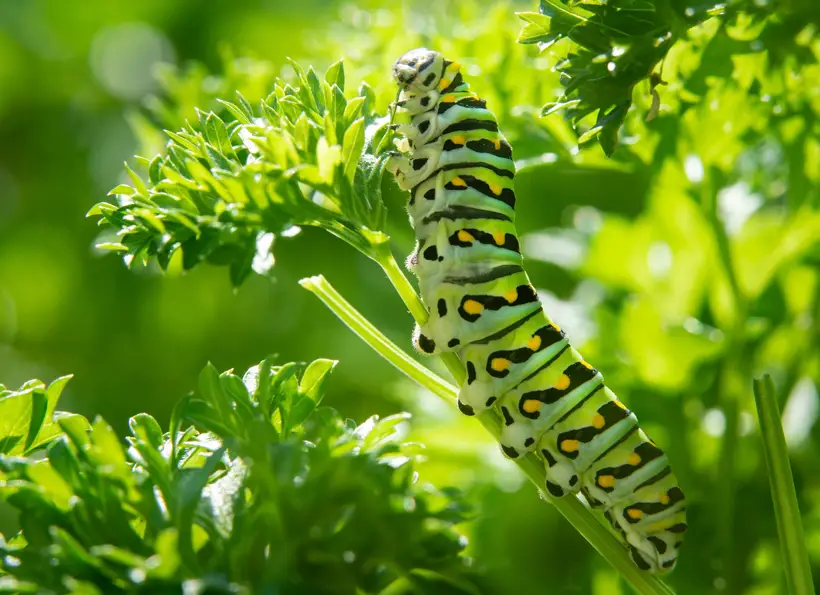
Opportunistic Hunters
Owls are opportunistic hunters and tend to take advantage of food sources that are easily available in their natural habitat. Caterpillars may become a part of their diet if they can find and grab them easily.
Increased Availability
When a specific area has a greater number of caterpillars, they may be more accessible and easier to locate than other prey that might be present in the same location. This can cause owls to consume more caterpillars than other prey.
Physical Adaptations
Certain species of owls have developed special abilities to hunt and eat insects like caterpillars. For example, Snowy Owls, Burrowing Owls, and Barn Owls with special facial disks that enhance their ability to hear and fly silently can catch small and difficult prey like caterpillars with great accuracy.
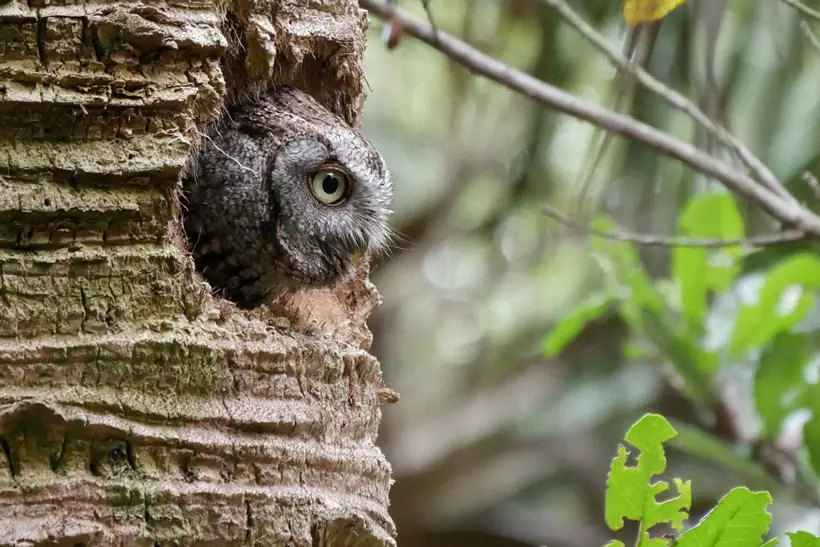
A Rise In Competition
If there is an increase in competition for prey, owls may choose to eat caterpillars. This is because caterpillars are an easily available and practical food alternative that can help them meet their dietary requirements.
Seasonal Effect
Caterpillar numbers tend to fluctuate periodically throughout the year. Owls may eat more caterpillars when they are most active during the spring and summer seasons. During winter, when they are not around, owls might eat fewer caterpillars.
Living In a Diverse Ecosystem
Owls live in different environments like forests, grasslands, and wetlands with different ecosystems. The availability of caterpillars depends on these ecosystems, so it may vary depending on the region.
If the area has lots of greenery and plants, it can provide a suitable habitat for caterpillars to live and thrive. This type of environment may also attract owls that prey on caterpillars.
Dietary Preferences
Each species of owl has its own food preferences and hunting methods. Some owls, such as Screech Owls and Scops Owls, may have a higher tendency to feed on caterpillars.
On the other hand, Long-eared owls and Barn owls may hunt other prey like field voles, wood mice, lizards, small foxes or bank voles.
Breeding Season
Adult owls may change their feeding habits during the breeding season. Because in the breeding season, when there are baby owls in the nest, owls prefer to hunt for prey that is easily accessible and more abundant. These prey may include insects like:
- Caterpillars
- Grasshoppers
- Beetles
- Dragonfly
- Crickets
- Centipedes
How Does Owl Consume Caterpillars?
Owls like to eat caterpillars as noted in a research paper. However, they are careful not to eat ones that have bright colors, stripes, or hair on them. This type of caterpillar is considered poisonous.
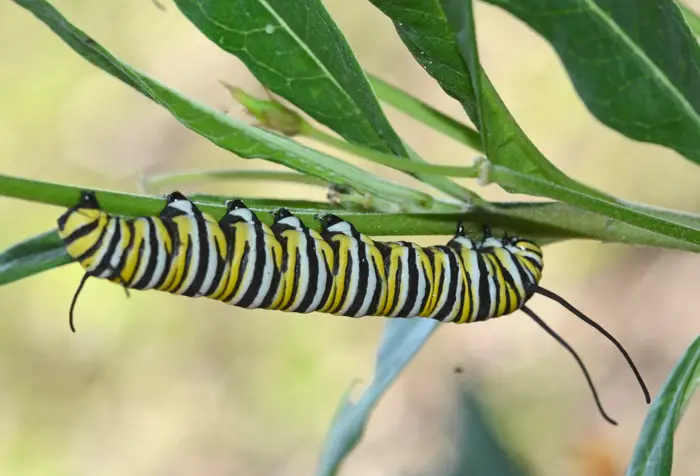
They usually perch on a tree branch looking for caterpillars and when one is spotted, they grab it and return to their perch to eat it. Since the caterpillar guts may contain toxic leaf matter that is difficult to digest, the owl removes the contents of the caterpillar’s gut.
They do this by biting off an end of the caterpillar and thrashing it against a branch. Once the gut is emptied, the owl swallows it whole.
What Benefits Do Owls Gain From Eating Caterpillars?
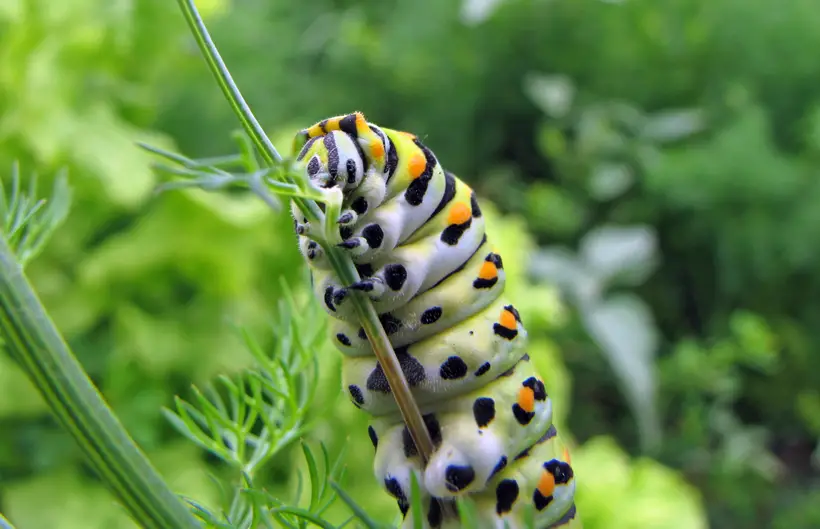
The table below lists some advantages owls derive from eating caterpillars. Take a look at the table.
| Derived Benefits | Description |
|---|---|
| Nutrition | Owls eat caterpillars as they are a good source of proteins, calcium, amino acids, and fatty acids that help to maintain and promote their growth and overall health |
| Good Energy Source | Owls need a lot of energy to support their active hunting habits and high metabolism, and they can get this energy by eating caterpillars |
| Accessible Food Source | Caterpillars are slow and can be easily caught by owls, so they are a readily available source of food |
| Population Control | By eating caterpillars, owls help to control the population of caterpillars, which can be harmful to plants and ecosystems |
| Adaptability to Environment | If owls eat caterpillars, it could lead to them being able to eat a wider variety of foods. This can help them adapt better if their habitat changes |
| Lower Risk Of Getting Preyed On | If owls hunt caterpillars, they can reduce their chance of getting hurt by other predators that might be interested in larger prey |
| Increased Brain Development | Eating caterpillars is good for the brain development of young owls because the caterpillars contain essential nutrients that help with this development |
FAQs
To learn more about whether owls eat caterpillars, take a look at the frequently asked questions below.
Caterpillars are not the main food source for owls. They only make up a small part of an owl’s diet. Owls also feed on small mammals, reptiles and amphibians.
You can control caterpillar populations naturally in your garden by attracting owls. You can achieve this by providing them with a friendly environment through nesting boxes or suitable roosting spots. Also, keeping a portion of your grass uncut may help attract them.
Owls generally hunt Caterpillars late at night or during twilight when they are most active. Owls are very good at seeing in the dark and have excellent hearing. This gives them an advantage in low-light conditions to be able to catch their prey effectively.
Owls can adjust their diet depending on what they find available to eat. When they find plenty of caterpillars, they may eat them often, but they won’t rely solely on them. Since they eat a variety of things, owls can survive in many different environments.
Caterpillars are not a significant danger to Owls. However, if they feed on too many poisonous Caterpillars, it can lead to severe sickness or even death.
Final Words
To sum up, owls have a varied diet and they do eat caterpillars as part of it. These remarkable birds are adaptable hunters and can consume different types of food to meet their dietary requirements.
Although insects like caterpillars are not what they regularly prey on, they will eat them if other food sources are not readily available. Moreover, owls play an essential role in ecosystems by promoting biodiversity.
Owls act as natural pest controllers and help to keep vegetation healthy, which benefits us and the environment.
